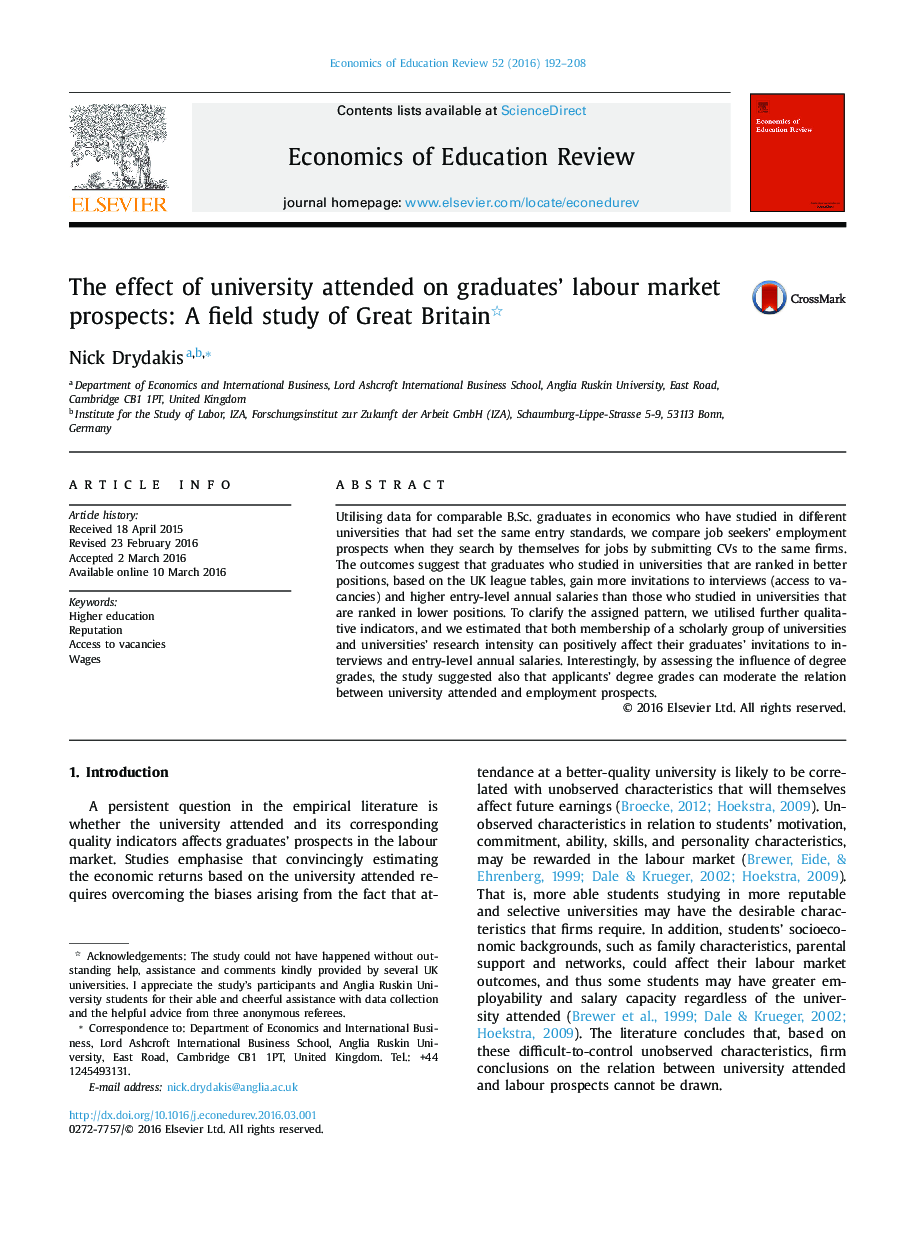| Article ID | Journal | Published Year | Pages | File Type |
|---|---|---|---|---|
| 354262 | Economics of Education Review | 2016 | 17 Pages |
•We collect labour market data through a collaboration with real students from different universities.•We minimise the omitted-variable problem arising when evaluating the effect of university attended.•Studying in universities that are ranked in better positions affects invitations to interviews.•Studying in universities that are ranked in better positions affects entry-level salaries.•Degree grades can moderate the relation between university attended and employment prospects.
Utilising data for comparable B.Sc. graduates in economics who have studied in different universities that had set the same entry standards, we compare job seekers’ employment prospects when they search by themselves for jobs by submitting CVs to the same firms. The outcomes suggest that graduates who studied in universities that are ranked in better positions, based on the UK league tables, gain more invitations to interviews (access to vacancies) and higher entry-level annual salaries than those who studied in universities that are ranked in lower positions. To clarify the assigned pattern, we utilised further qualitative indicators, and we estimated that both membership of a scholarly group of universities and universities’ research intensity can positively affect their graduates’ invitations to interviews and entry-level annual salaries. Interestingly, by assessing the influence of degree grades, the study suggested also that applicants’ degree grades can moderate the relation between university attended and employment prospects.
